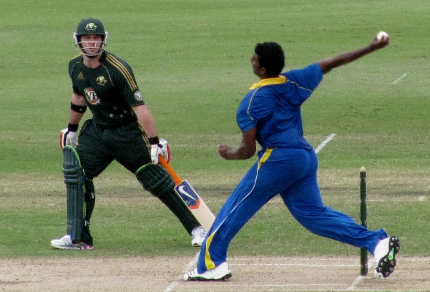In the darkness of 5:40 a.m., the air’s damp warmth felt too close, too thick. Haunting, broken calls of bush stone-curlews rang out over the sodden golf course, and in the distance, laughing kookaburras cackled rudely. Bowerbirds flew across my path in the brightening light, seeming to skulk even in flight. I completed 6 intervals of 8 minutes running and 2 minutes walking, pushing myself onward for the entire hour with the thought that I was running toward winter, toward cooler, drier air, toward relief.
On my return home, I checked the Townsville weather and learned that this morning’s humidity was 87%, paired up with a temperature of 26°C. The forecast high or ‘top’ was 31°C, which was pretty much what the top has been, give or take a degree or two, since we arrived in Australia. However, the high summer humidities Townsville experiences has made those top temperatures feel several degrees hotter. Ironically, today is the first day of autumn, the first day of a three-month slide toward that winter I so longed for during my sweaty run. In Townsville’s mid-winter, the average July top is 25°C, with the nights cooling to an average low of 14°C.1 How appealing those temperatures appear to me, like bright lights at the end of a long, sultry tunnel.
Uncharacteristically, I listened to national radio while writing this morning, to catch updates on the Canada vs. United States Olympic men’s hockey final, referred to as ice hockey to distinguish it from the typical hockey in Australia, which as a Canadian, I think of as field hockey. I found it curious and a little amusing to hear hockey periods described as ‘terms’ and the 20-minute overtime period referred to as the ‘fourth quarter.’ However, I was thankful for the frequent updates, and threw my arms up in celebration at the news that Sidney Crosby – a homegrown Nova Scotian and NHL superstar – had scored the winning goal. Just two weeks ago, the ABC’s Olympic coverage focused on Canada seeking its first Olympic gold medal as a host country (Both the 1976 summer Olympics in Montreal and 1988 Winter Olympics in Calgary had yielded none.). Yet today, the ABC seemed to celebrate along with Canada as it won its fourteenth gold medal at the 2010 Vancouver Olympics, the most ever won by a winter Olympics host country, and more than the United States and Germany, both of which placed ahead of Canada in the overall medal count.2 Good on you, Canada!
Australia itself is rife with major sporting teams and events. In mid-January, it hosted both the Tour Down Under and the Australian Open. Those cycling and tennis events I could follow, as I can sports news concerning basketball, soccer, and, to a lesser degree, rugby and horse racing. I have to admit, though, that I am totally lost when it comes to cricket, which is wildly popular in this country. This morning, an excitement-studded report from an international cricket match included terms and phrases like ‘century’, ‘bowling’, ‘20-20 match’, ‘4 for 214’, ‘6 for 214’, ‘super over’, ‘extra over’, ‘made 6 balls’, ‘6 wickets’. At least, I think that’s what it said. It was like hearing English words constructed into a totally foreign language.

Cricket, Australia vs. Sri Lanka (© Magi Nams)
What came across clearly, however, was Australia’s fascination with sport. That fascination was certainly in evidence while Aussie cold-sport athletes competed at the winter Olympics and made their best showing ever, winning two gold medals and a silver medal. And of course, Australia is a heavy at the summer Olympics (placing sixth, fourth, and fourth overall at the past three summer games3) and hosted the impressively organized and outstandingly friendly Sydney Olympics in 2000, which was only the second summer Olympics held in the Southern Hemisphere.4 (The first was also held in Australia, in Melbourne in 1956.4) And they’ve accomplished all this with a population of just over 22 million.5
I found it enlightening that, while Canadian sports broadcasters always mention Olympic gold, silver, and bronze medal winners in the various events, the Australian sports news I heard focused only on gold. In an ABC interview last week with Lydia Lassila, Aussie gold medalist in women’s aerial skiing, the broadcaster made a rather startling comment to the effect that if Lassila hadn’t won gold, she probably would have hung her head and wondered why she’ d bothered going.6 This is one competitive country.
References:
1. Australian Government, Bureau of Meteorology. Climate statistics for Australian locations: Summary statistics Townsville Aero. © Commonwealth of Australia, Bureau of Meteorology 2010. Accessed 1-Mar-2010. http://www.bom.gov.au/climate/averages/tables/cw_032040.shtml
2. Vancouver 2010. Medals. © 2010 The Vancouver Organizing Committee for the 2010 Olympic and Paralympic Winter Games. Accessed 1-Mar-2010. http://www.vancouver2010.com/olympic-medals/
3.Wikipedia. Summer Olympics Medal Table. Updated 6-Nov-2010. Accessed 19-N0v-2010. http://en.wikipedia.org/wiki/2000_Summer_Olympics_medal_table ; http://en.wikipedia.org/wiki/2004_Summer_Olympics_medal_table ; http://en.wikipedia.org/wiki/2008_Summer_Olympics_medal_table
4. Wikipedia. 2000 Summer Olympics. Updated 16-Nov-2010. Accessed 19-Nov-2010. http://en.wikipedia.org/wiki/2000_Summer_Olympics
5. Wikipedia. Demographics of Australia. Updated 10-Nov-2010. Accessed 19-Nov-2010. http://en.wikipedia.org/wiki/Demographics_of_Australia
6. ABC Radio National Breakfast. Australian Lydia Lassila wins gold at winter Olympics. Friday, February 26, 2010, 6:05 a.m. http://www.abc.net.au/rn/breakfast/stories/2010/2830689.htm


